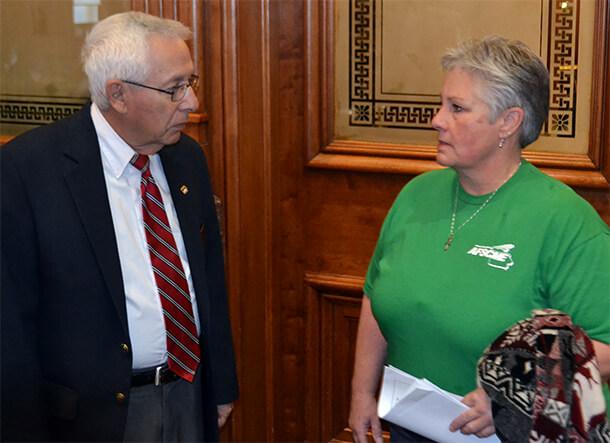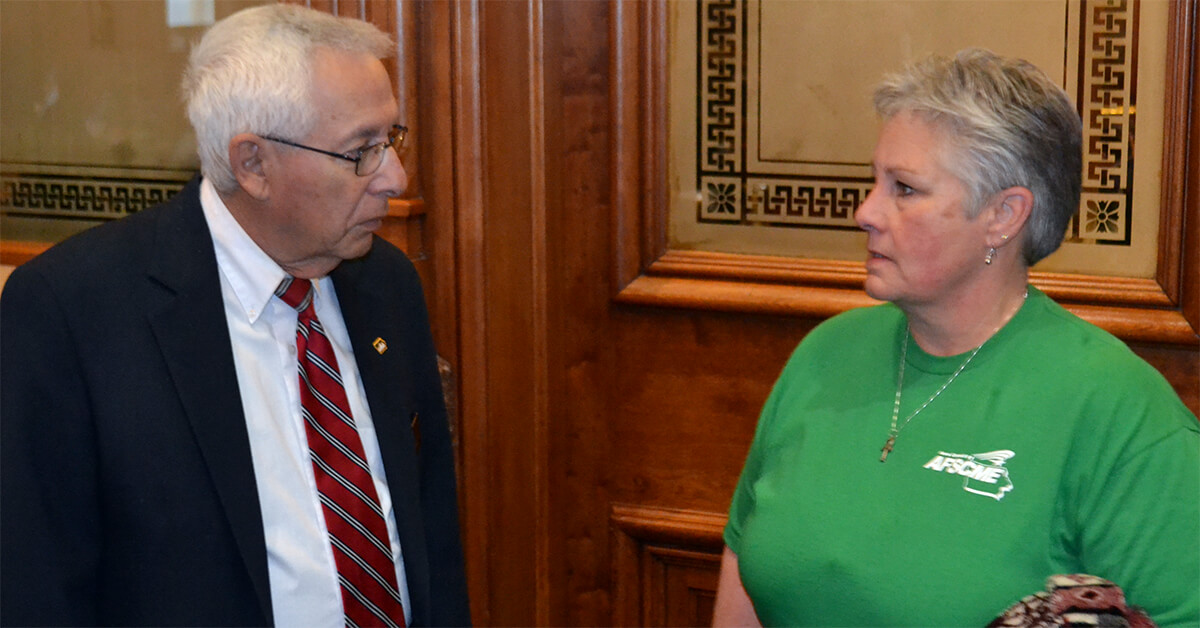
DES MOINES, Iowa – On the first day of Iowa’s legislative session, January 9, more than 100 members of AFSCME Iowa Council 61 gathered at the Capitol to meet with their legislators and demand that they oppose any changes to Iowa’s collective bargaining system.
Leaders of the Republican-held Senate and House, along with GOP Gov. Terry Branstad, have indicated that Wisconsin-style changes to public employee collective bargaining could be on the horizon.
Wisconsinites have suffered since their legislature decimated public sector collective bargaining in 2011. Wisconsin’s economy now lags its neighbors, prisons are short staffed and teachers have fled the state.
“Studies suggest that Iowans are even getting a bargain from those who provide the vital services that protect and ensure the safety of our communities,” said Danny Homan, president of Council 61 and AFSCME International vice president.
Julie Schultz, president of AFSCME Local 3289, said collective bargaining is crucial to retaining experienced public service workers who provide superior services to their communities.
“I’ve spent 20 years as a probation officer learning how criminals think, always continuing my education and certifications to stay on top of my profession,” she said. “If collective bargaining is restricted and we lose wages, benefits and rules that protect us, professionals like me with experience will retire or be replaced. And we’ll be left with unqualified people to provide vital service that protect the public.”
Public employees, Schultz said, “are the threads that hold our communities together.”
“We’re the teachers who teach our kids, we’re the correctional officers who keep criminals off the streets and we’re the nurses who care for the sick,” she said. “When we suffer our communities suffer.”
